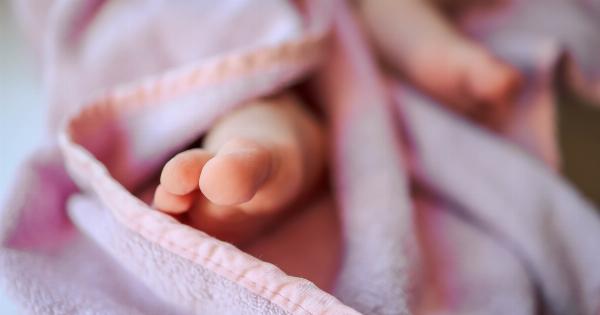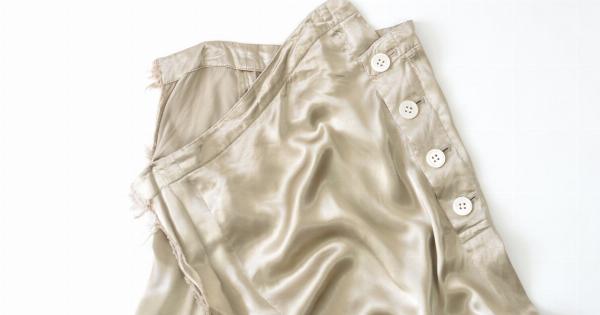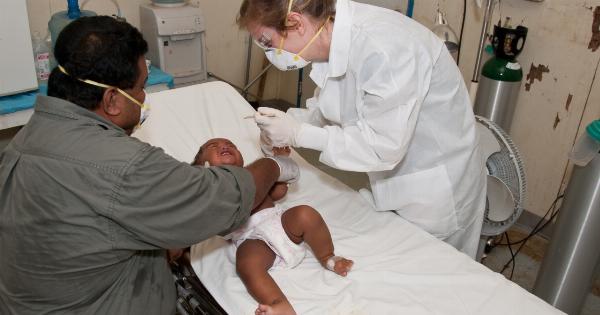Watching your little one suffer from rhinitis can be heartbreaking. This condition is common among babies and can cause a lot of discomforts such as runny or stuffy nose, inability to sleep, and even loss of appetite.
Rhinitis can also be a symptom of a more serious underlying illness, so it’s essential to address it as soon as possible. If you’re wondering how to alleviate rhinitis in your baby, here are some tips that can help:.
1. Proper Hydration
One of the most important things you can do to alleviate rhinitis in your baby is to ensure they are well-hydrated. Drinking plenty of fluids will help thin out the mucus and make it easier to expel.
You can breastfeed or bottle-feed your baby more often than usual and offer water in a sippy cup if they’re old enough to drink from one. You can also offer popsicles or frozen fruit chunks to soothe the throat and provide additional hydration.
2. Saline Nasal Drops
Saline nasal drops are an excellent remedy for relieving nasal congestion in your baby. These drops work by moistening the nasal passages and loosening the mucous, making it easier to suction out.
You can use saline drops before feeding or sleeping to help clear your baby’s nose. Make sure to choose a gentle and non-medicated version to avoid any adverse effects.
3. Use a Nasal Aspirator
A nasal aspirator is a device that helps remove excess mucus from your baby’s nostrils. It’s a useful tool for clearing the nasal passages in babies who are too young to blow their noses.
You can purchase a bulb syringe or an electric aspirator from a pharmacy or baby store. Make sure to clean the aspirator thoroughly after each use to avoid contamination.
4. Steam Therapy
Steam therapy is another effective way to relieve rhinitis in your baby. It helps loosen the mucous, reduce inflammation, and ease breathing. You can use a humidifier, take your baby to a steamy bathroom, or use a facial steamer to provide steam therapy.
Make sure to monitor your baby during the therapy to avoid any accidents.
5. Elevating the Head
Elevating your baby’s head can help relieve the pressure caused by rhinitis. You can raise the head of the crib or place a rolled-up towel under the mattress to elevate the head.
This position will help drainage of the nasal passages and reduce the severity of the rhinitis.
6. Avoid Irritants
Various irritants such as smoke, strong odors, and pollutants can aggravate rhinitis. Make sure to keep your baby away from these irritants and ensure that their environment is clean and free from allergens.
If you have pets, make sure to keep them away from your baby’s room, as they can trigger an allergic reaction.
7. Use Over-the-counter Medications
In severe cases of rhinitis, your pediatrician may recommend over-the-counter medication to relieve the congestion and improve your baby’s breathing. Most medications include antihistamines, nasal sprays, or decongestants.
However, you should never self-medicate your baby and always consult the pediatrician before giving any medication.
8. Breastfeeding
Breastmilk is not only a source of nutrition but also acts as a natural remedy for rhinitis. It contains antibodies that help boost your baby’s immune system, and it also provides hydration that can help alleviate rhinitis symptoms.
Make sure to breastfeed your baby frequently to help them overcome the condition faster.
9. Warm Compresses
Warm compresses can help relieve the inflammation and pressure caused by rhinitis. You can use a warm cloth or a heating pad to apply gentle pressure on your baby’s face.
This therapy can also provide a soothing effect that can help your baby sleep more easily.
10. Follow the Doctor’s Advice
If you notice that your baby’s rhinitis symptoms persist or worsen, make sure to consult a pediatrician. They can diagnose the underlying condition and provide specific recommendations for treatment.
Make sure to follow the doctor’s advice and administer any medication as prescribed.






























